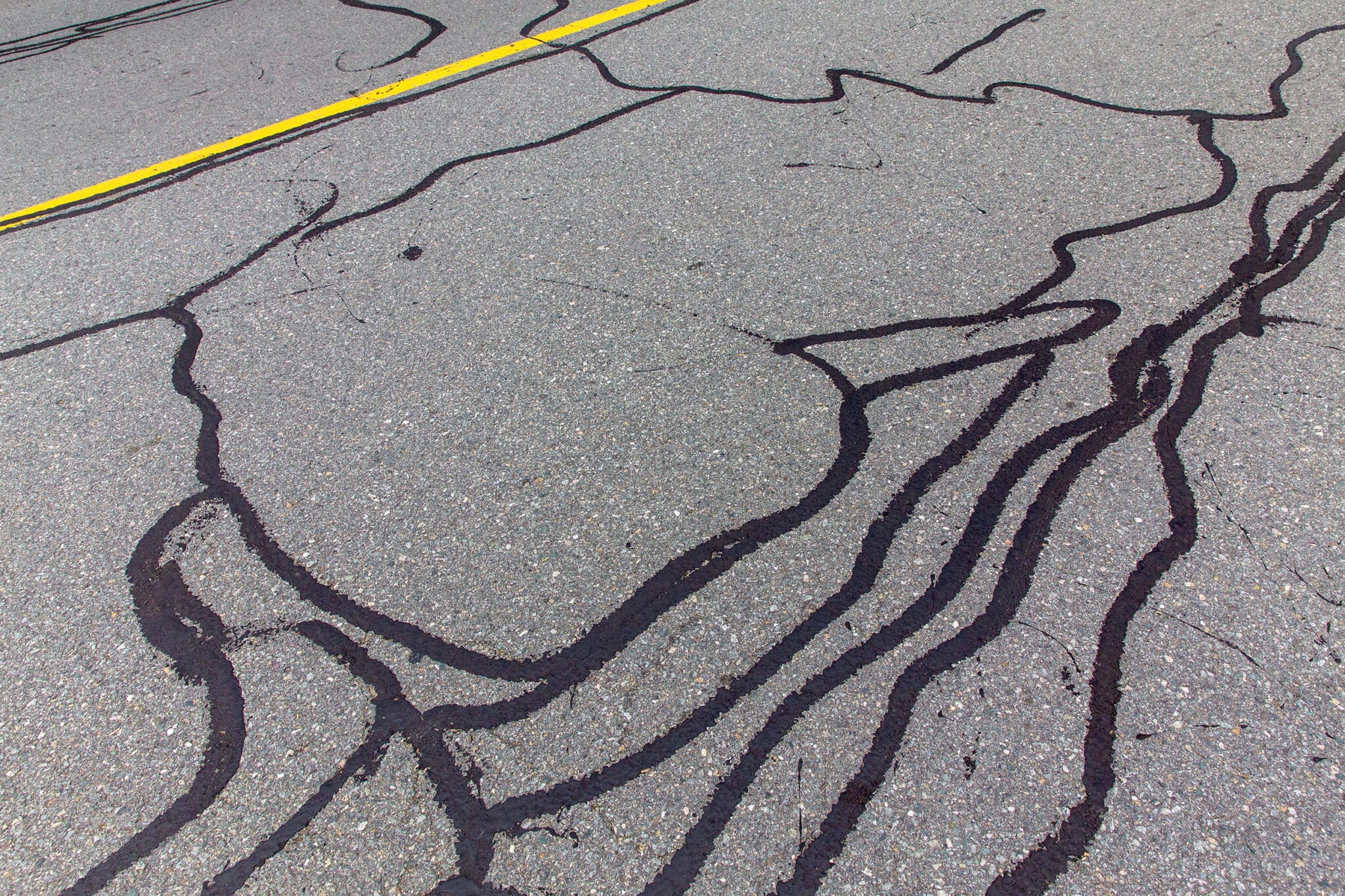Raise Safety And Security and Allure: Angled Parking Lot Solutions with Asphalt Sealing
Raise Safety And Security and Allure: Angled Parking Lot Solutions with Asphalt Sealing
Blog Article
Hot Mix Asphalt: A Sustainable Remedy for Sidewalk
Hot Mix Asphalt (HMA) has actually emerged as a leading lasting choice for sidewalk solutions, providing a myriad of environmental advantages and cutting-edge modern technologies. Its capacity to lower and recycle products power usage presents an engaging situation for its fostering in roadway construction jobs. The long-term efficiency and sturdiness of HMA make it a favored choice for framework growth. As the need for environmentally friendly construction practices expands, exploring the subtleties of HMA's sustainability can offer useful understandings into the future of sidewalk remedies.
Environmental Advantages of Hot Mix Asphalt

Additionally, Hot Mix Asphalt helps to alleviate city heat island effects. Its dark color takes in sunlight, reducing the quantity of warmth reflected back into the atmosphere compared to lighter-colored pavements. This can decrease ambient temperatures in metropolitan locations, decreasing the demand for air conditioning and ultimately reducing energy consumption.
In addition, Warm Mix Asphalt adds to boosted stormwater monitoring. Its permeable nature allows water to recharge and infiltrate the pavement groundwater products, reducing drainage and the threat of flooding. These ecological advantages make Warm Mix Asphalt a lasting option for leading freeways and roadways.
Energy Performance in HMA Production
Is power effectiveness an important variable in the manufacturing of Hot Mix Asphalt (HMA)? Absolutely. Power plays a considerable function in the production of HMA, impacting both price and ecological sustainability. One key element of power effectiveness in HMA production is the use of cozy mix asphalt (WMA) modern technologies (commercial parking lot paving). WMA permits the mixing and placement of asphalt at reduced temperature levels contrasted to standard warm mix asphalt, causing minimized energy intake throughout production. This procedure not just reduces gas usage however also decreases greenhouse gas exhausts, making it a more eco friendly choice.
Furthermore, improvements in plant technologies have actually led to more energy-efficient HMA manufacturing procedures. By maximizing energy usage in HMA production, the sector can reduce its carbon impact while keeping top notch sidewalk products.
Recyclability of Warm Mix Asphalt
The recyclability of Hot Mix Asphalt (HMA) is an essential element of its sustainability and lasting ecological influence. HMA is just one of one of the most recycled products in the United States, with over 100 million lots of reclaimed asphalt sidewalk (RAP) being recycled yearly in brand-new pavement building. Reusing HMA provides several ecological benefits, such as decreasing the requirement for virgin products, lowering power usage during production, and lowering the amount of waste sent to land fills.
The process of recycling HMA includes milling the existing pavement, crushing it into smaller sized pieces, and mixing it with new accumulation and asphalt binder to create a recycled mix. This recycled mix can frequently execute in addition to and even better than conventional HMA, while calling for fewer resources and generating lower greenhouse gas emissions. By integrating RAP right into new sidewalk jobs, road firms can conserve all-natural sources, lower costs, and reduce the ecological impact of road building and maintenance tasks. On the whole, the recyclability of HMA plays a significant role in promoting lasting techniques within the sidewalk market.

Long-Term Performance of HMA
Asphalt pavements demonstrate resilience and resilience over an extended duration, mirroring the lasting efficiency of Hot Mix Asphalt (HMA) Additionally, advancements in HMA technology, such as the usage of polymer-modified binders and cozy mix asphalt, have even more enhanced the durability and long life of HMA sidewalks. By prioritizing quality construction and upkeep methods, HMA continues to show itself as a sustainable and cost-efficient solution for resilient pavement framework.

HMA: Durability and Sustainability
Showing both sturdiness and sustainability, Warm Mix Asphalt (HMA) has actually become a foundation in the building of lasting sidewalk facilities - angled parking. HMA's toughness comes from its ability to hold up against heavy commercial parking lot paving tons, rough climate condition, and high traffic volumes, making it a trusted selection for highways, highways, and flight terminal paths. The make-up of HMA, which typically includes aggregates, binder, and filler, plays a vital duty in enhancing its longevity and resistance to tear and wear
Additionally, HMA's sustainability depends on its recyclability and energy-efficient manufacturing procedure. The capacity to reuse reclaimed asphalt pavement (RAP) in new HMA mixes reduces the demand for virgin materials and reduces the environmental effect of pavement building and upkeep. Furthermore, the power performance of producing HMA hinges on its reduced blending temperature levels contrasted to other pavement materials, resulting in decreased energy consumption and greenhouse gas discharges.
Final Thought
To conclude, hot mix asphalt (HMA) offers a lasting remedy for sidewalk with its eco-friendly qualities. HMA's recyclability, energy efficiency in manufacturing, and lasting longevity make it a green option for road construction. By conserving natural deposits, decreasing waste, and lowering greenhouse gas emissions, HMA plays a critical duty in promoting sustainability in infrastructure growth. Its capability to reduce urban heat island results additionally highlights its importance in developing ecologically conscious and resistant pavement systems.
HMA is one of the most recycled materials in the United States, with over 100 million heaps of recovered asphalt pavement (RAP) being recycled annually in new sidewalk building.The procedure of recycling HMA entails milling the existing sidewalk, crushing it into smaller sized pieces, and mixing it with brand-new accumulation and asphalt binder to produce a recycled mix.Asphalt sidewalks demonstrate longevity and durability over a prolonged duration, showing the lasting performance of Warm Mix Asphalt (HMA) In addition, developments in HMA modern technology, such as the use of polymer-modified binders and cozy mix asphalt, have actually better enhanced the toughness and longevity of HMA sidewalks. The ability to recycle redeemed asphalt pavement (RAP) in new HMA combinations reduces the demand for virgin products and decreases the environmental effect of pavement construction and upkeep.
Report this page